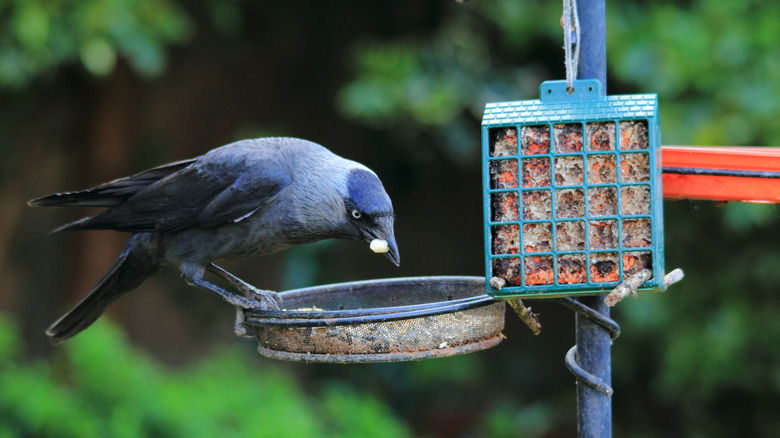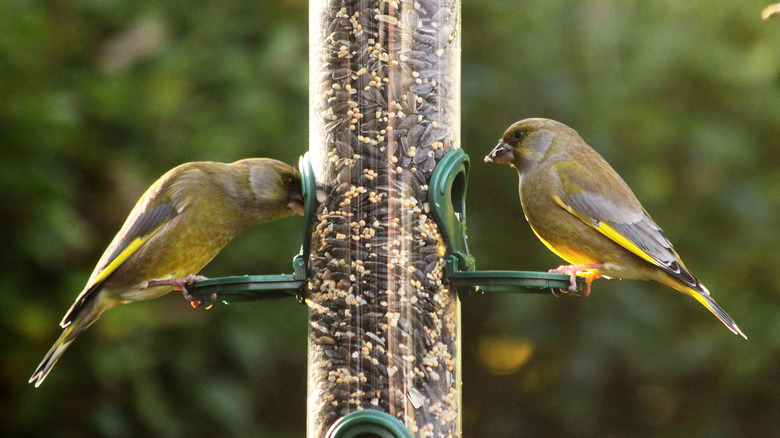Birds You Never Want To See At Your Backyard Feeder (And How To Keep Them Away)
We may receive a commission on purchases made from links.
Bird feeders can provide hours of entertainment for you and your pets and serve as a great tool for attracting native species such as finches, robins, and sparrows to your home. However, one hidden danger of hanging feeders in your yard might not be what you expect: bully birds. While these unwanted avian visitors may have identified your feeder as the perfect place to hang out, they can push smaller birds away from the area, or even kill other species' chicks.
Some of the most common types of bully bird you might see include crows, magpies, blue jays, sparrows, doves, pigeons, and blackbirds. Though not inherently bad to have around, these avians can steal food from feeders more quickly, leaving nothing behind for other birds to enjoy. Luckily, you can make a few changes to ensure your bird feeder remains a diverse, enjoyable place for all species.
How to deter bully birds from hanging out at your feeder
Two main approaches can help fend off bully birds: swapping and augmenting the feeder and changing the diversity of food. Offering caged feeders can make it easier for smaller birds to eat without having to share with larger avians. Meanwhile, guards, covers, smaller perches, and homemade seed catchers can make it harder for bigger birds to grab on and steal food. Decoys, such as spinning reflective objects or models that resemble predators, can keep bully birds from moving in. HiAnifri's Owl Decoys and Shyldeva Store's 3D Stainless Steel Wind Spinners are generally well-reviewed options to consider.
Managing food diversity can also promote the bird species you want to see. Adding native plants around your feeder may encourage birds that don't eat seeds to visit. Changing what seeds you offer could further help. Safflower seed, thistle seed, corn, millet, and wheat can all provide seed diversity that bully birds dislike. Only some birds eat thistle seed due to its bitter flavor, and thistle and safflower both have shells that could deter more aggressive species. Lastly, keeping the area around the feeder clean will minimize the free buffet bully birds may be looking to take advantage of.

